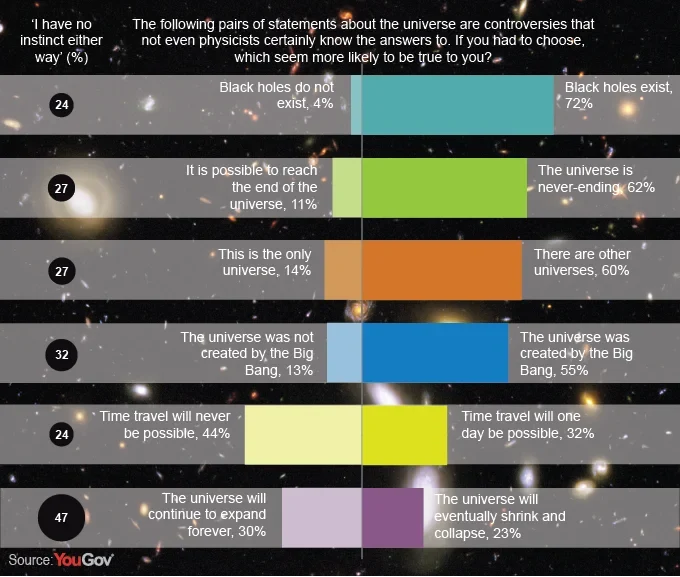Not even top physicists can agree what’s really going on in the universe, but most people have a strong instinct for answers to the big questions
One of the greatest physicists in the world has just decided that a theory he came up with is not actually true. Stephen Hawking, the brains behind the black hole, has written in a paper that “there are no black holes” – no information can escape from a black hole, but since that is not allowed by the laws of quantum physics black holes surely must not exist.
It all seems pretty confusing, so we thought we'd see if normal people had a clearer instinct for the right answers. The survey reveals that people are surprisingly certain about the biggest questions of the universe.

Does the universe go on forever? Is it really a giant, finite doughnut? There is virtually no consensus in the scientific community. But in the popular mind there really is: 62% say the universe is never-ending while just 11% say it is possible to reach the end.
And as if solving the problems of one universe wasn’t hard enough, 60% even believe that there are other universes. Only 14% say this is the only one.
Among so much certainty on the above, more exotic theories, it is odd that the one theory people are regularly taught in schools – the big bang – is actually believed by fewer (55%).
But although people seem remarkably positive about the above points, they are negative about time travel (44% say it will never be possible; 32% say it will) and basically undecided on the eventual fate of the universe: 30% say it will continue to expand forever while 23% say it will, one day, shrink and collapse.







